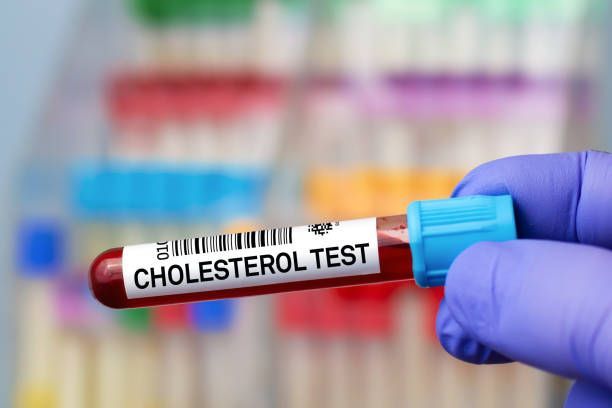Recognizing the Early Signs of Sepsis from a Tooth Infection
A tooth infection might seem like a localized problem, but if left untreated, it can have severe consequences, including the potential development of sepsis. Sepsis is a life-threatening condition triggered when the body’s response to an infection spirals out of control, causing widespread inflammation that can lead to organ damage and failure. While often associated with conditions like pneumonia or urinary tract infections, sepsis can also stem from untreated dental infections.
Understanding how a tooth infection can escalate and recognizing the early signs of sepsis are crucial for timely intervention. In this article, we’ll explore how tooth infections develop, the risk factors for sepsis, and the symptoms that warrant immediate medical attention.
Table of Contents
How Does a Dental Abscess Lead to Sepsis?
A tooth infection, or dental abscess, occurs when bacteria invade the soft tissue or bone surrounding a tooth, typically due to untreated cavities, gum disease, or dental trauma. As the infection progresses, it may form a pus-filled pocket called an abscess, leading to pain, swelling, and inflammation.
If the infection is not managed, the bacteria can spread beyond the tooth and gums to other parts of the body. When the immune system reacts to this widespread bacterial invasion, it may trigger sepsis. The progression typically occurs in three stages:
- Localized Infection: The bacteria remain confined to the tooth and surrounding tissues.
- Bacteremia: The bacteria enter the bloodstream, spreading the infection.
- Sepsis: The body’s immune response becomes dysregulated, causing widespread inflammation.
For detailed insights into the link between dental infections and systemic health, visit the American Dental Association (ADA).
Read this next: Your Ultimate Guide to Locating the Best Urgent Care Near You
Who Is at Risk?
While anyone with an untreated tooth infection can develop sepsis, certain factors increase the risk, including:
- Weakened Immune System: Individuals with conditions like diabetes, HIV, or those undergoing chemotherapy are more vulnerable to infections spreading.
- Advanced Age: Older adults are at higher risk of sepsis due to weaker immune responses and the presence of chronic conditions.
- Delay in Treatment: Failing to address tooth pain, swelling, or other symptoms can give the infection time to spread.
- Underlying Health Issues: Conditions like heart disease or chronic respiratory disorders can exacerbate complications from infections.
Recognizing these risk factors can help prioritize dental care and early treatment of tooth infections.
Early Signs of a Tooth Infection
Recognizing the symptoms of a tooth infection early can help prevent it from escalating into sepsis.
Common signs include:
- Persistent, throbbing pain in the affected tooth or surrounding area
- Swelling of the face, jaw, or gums
- Redness and tenderness in the gums
- A bad taste in the mouth, often accompanied by foul-smelling breath
- Fever, signaling that the body is fighting an infection
- Difficulty opening the mouth, chewing, or swallowing
If you notice any of these symptoms, especially fever or facial swelling, seek immediate dental care.

What Is Sepsis?
Sepsis occurs when the body’s immune response to an infection causes widespread inflammation, which can damage tissues and organs. It is a medical illness that requires urgent treatment.
What are the 3 Stages of Sepsis
- Sepsis: The initial stage where symptoms like fever, rapid heart rate, and confusion appear.
- Severe Sepsis: Involves organ dysfunction, such as difficulty breathing or reduced urine output.
- Septic Shock: A critical stage marked by dangerously low blood pressure, which can lead to organ failure and death.
Early Symptoms of Sepsis from a Tooth Infection
The early symptoms of sepsis can be subtle and easily mistaken for other conditions, but they often include:
- High fever or abnormally low body temperature (hypothermia)
- Chills and shivering
- Rapid heart rate (tachycardia)
- Rapid breathing or shortness of breath (tachypnea)
- Extreme fatigue or weakness
- Confusion or disorientation
These symptoms typically appear suddenly and worsen rapidly. If you or someone you know exhibits these signs after a tooth infection, seek immediate medical attention.
How Is Sepsis Treated?

Prompt treatment improves outcomes significantly. The World Health Organization (WHO) emphasizes that recognizing sepsis early can save lives.
Sepsis requires aggressive medical treatment, which typically includes:
- Intravenous Antibiotics: Administered to combat the underlying bacterial infection.
- IV Fluids: Used to maintain blood pressure and prevent shock.
- Oxygen Therapy: Provided if sepsis affects lung function.
- Monitoring and Support: In severe cases, patients may require intensive care, including mechanical ventilation or dialysis for organ support.
Preventing Tooth Infections and Sepsis
Prevention is always better than treatment. Here are steps you can take to reduce the risk of tooth infections and sepsis:
Maintain Good Oral Hygiene Practices
- Brush your teeth twice daily with fluoride toothpaste.
- Floss daily to remove plaque and food particles.
- Visit your dentist regularly for cleanings and check-ups.
Learn more about oral hygiene practices from the Centers for Disease Control and Prevention (CDC).
Address Dental Issues Promptly
- Don’t ignore tooth pain, swelling, or sensitivity.
- Seek immediate dental care for cavities, gum infections, or trauma to the teeth.
- Follow through with prescribed antibiotics if your dentist identifies an infection.
Stay Informed About Risk Factors
- Manage chronic health conditions like diabetes to reduce infection risks.
- Inform your dentist about your medical history and any medications you’re taking.
- Be proactive if you have a weakened immune system, as infections can progress faster.
Read this next: Most Common Conditions Treated in Urgent Care Clinics: A Comprehensive Guide
Get the Care You Need Today
A tooth infection might seem like a minor inconvenience, but ignoring it can lead to severe complications, including sepsis. Recognizing the early signs of a tooth infection and understanding how it can escalate is essential for timely treatment.
If you suspect sepsis due to a dental infection, seek immediate medical care. Check-in with us today at UrgiClinic Urgent Care.













